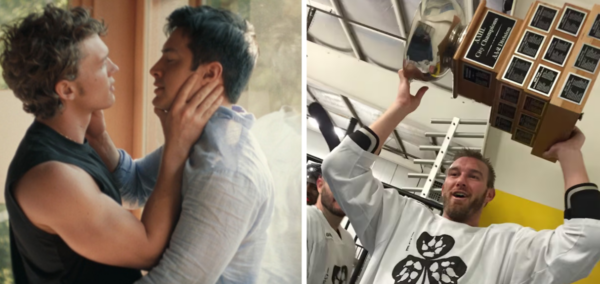
Review: Emma
An Austenite’s dream! (and Jane’s own nightmare)
If you’re looking for a Regency romance, look again, because Pembroke Players’ production of Emma explores the life of perpetually single Jane Austen, not the meddling matchmaker Emma Woodhouse (but with an ample amount of Emma’s cheeky frill).
Walking into Pembroke Cellars last night, I tried to manage my expectations. But, as a Jane Austen lover and scholar (I wrote my undergraduate thesis on marriage and courtship in Emma and Pride and Prejudice adaptations), I couldn’t contain my excitement to see an adaptation of my favourite Austen novel Emma. However, what I saw was not a story of Emma but rather her creator – our true heroine Jane. Emma follows Jane, an unmarried woman of twenty-nine as she navigates her career as a writer (a woman writer, mind you!) and the marital pressures and expectations as a woman in Regency society.
Most Read
Writer and director Sophia Orr has penned an exceptionally smart script. With references to Austen’s other novels like Pride and Prejudice (originally titled First Impressions), Sense and Sensibility, and post-humously published Lady Susan and The Watsons, many jokes and quips do rely on a level of prior knowledge of Austen’s life and work but are exceptionally satisfying for the Austenite. However, as I was exiting the show, I overheard several people explaining the references and even whole novels to their less Austen-astute friends, making me wonder if the show would be universally appealing to the Austen novice. Make note: it is no adaptation of Emma as some might expect. The show oscillates between Jane’s delusions of Emma and Mr. Dightley (Ludo de Falbe), a slant on Mr. Knightley, letters between Jane and her sister Cassandra (Christina Randazzo) and sister-in-law Anne (Helen Lyster), memories of a previous lover Thomas (Hannah Brecher), and Jane’s corporeal interactions with family and other members of society.

Jane, Cassandra, and Anne (Image credits: @emma.pembroke.players via Instagram)
The production itself was impressive with costume designers Abi Beton and Alice Ward’s gorgeous Regency dresses (such as Mrs. Perrot’s divine pink frock and Emma’s sweet white gown) and coattails, set designer Daphne Stavride’s myriad of stacked books and papers overtaking the stage, immersing the audience in Jane’s writer’s room, and creative sound and lighting choices, especially during Emma’s tantrum towards the end of the play. These elements all contributed to making the play, which seemed stiff at times, come alive as the characters were both in Austen’s head and of Austen’s world, keeping even bleak moments fresh.

Mrs. Leigh-Perrot (Image credits: @emma.pembroke.players via Instagram)
Each actor held their own, but some performances outshined others. Annie Fogden’s standout performance as Mrs. Austen was clearly modeled after the overbearing marriage market-minded Mrs. Bennett in Pride & Prejudice (2005), leaving me delighted with her silly exclamations and hilarious comedic timing. Additionally, titular character Emma, played by Anna Hipkiss, sparkled as her character evolved from Emma Watson into – what the audience can assume is – Emma Woodhouse by the conclusion of the play. Her mischievous meddling in Jane’s life gave the production purpose as she took on the role of the devil on Jane’s shoulder. Lucy Brittain’s Jane anchored the entire show, grounding the production as she steadily grows more attached to her “delusions”. Brittain’s performance was nothing short of incredible!
The play’s overarching theme primarily concerns itself with the act of hiding behind one’s writing as Jane “hides” in her writing after heartbreak and loss. As a result of this hiding, Jane loses herself in delusions of her fictional characters, linking herself with Emma as almost a dark, headstrong mirror image. I personally found the coupling of Emma and Jane quite satisfying and founded in literary accuracy. While the concept of losing oneself in one’s writing and grief to the point of ignoring close friends’ and family’s wellbeing is interesting and could certainly apply to Austen, I was quite put off by the ending, which seemed to degrade Jane.
The show seems to initially applaud Jane as a female author. However, the show focuses more on Jane’s loneliness as she longs for her lost lover, leaving her forlorn and wanton. While I think it is important to acknowledge Jane’s desire for the one she loves, the play seems to make it her primary focus, rendering her character slightly piteous rather than sympathetic, especially after the loss of one of her dear friends. Additionally, her passion for writing becomes her downfall as she throws herself into her delusions with Emma and absconds her friends and family in a time of immense grief and financial and physical hardship, making it difficult to empathise with her. Instead of achieving what I believe their goal was, to show Jane’s own mental health struggles and how her passion and talent for writing helped her overcome them, Emma seems to degrade Jane, boxing her in as simply a “female novelist” who briefly goes “mad”.

Anne and George (Image credits: @emma.pembroke.players via Instagram)
Overall, I appreciated the references, the snappy dialogue, and the creative staging choices. Emma is a deep dive into Jane Austen’s writerly process, exploring her as a human being – as a woman. My Austenite heart was immensely satisfied with Emma, delighting in the wonderful letter sequences between Anne, Cassandra, and Jane or the community gatherings with Jane’s brother George (Greg Worden) and Mrs. Leigh-Perrot or the tender heart of Mr. Austen (Isabel de Andreis). It has all the charm and acerbic grit of Austen’s novels – a quirky realization of Jane Austen’s life. All Austenites, grab your tickets now!
4/5
Emma is showing from 5th – 9th March at Pembroke New Cellars at 19:00. Buy your tickets here.
Feature image credits: @emma.pembroke.players



















